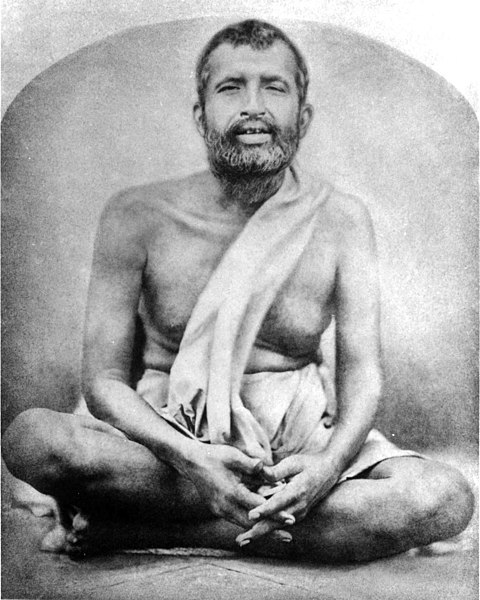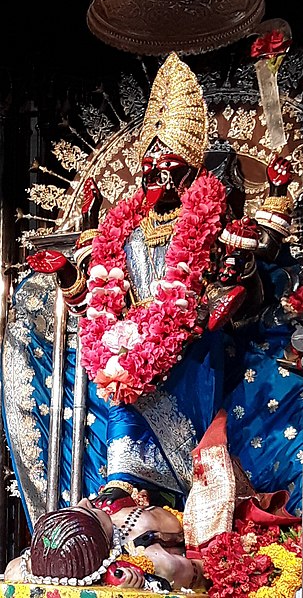Swami Vivekananda, born Narendranath Datta, was an Indian Hindu monk, philosopher, author, religious teacher, and the chief disciple of the Indian mystic Ramakrishna. He was a key figure in the introduction of Vedanta and Yoga to the Western world, and the father of modern Indian nationalism who is credited with raising interfaith awareness and bringing Hinduism to the status of a major world religion.
Vivekananda in Chicago, September 1893. In note on the left Vivekananda wrote: "One infinite pure and holy – beyond thought beyond qualities I bow down to thee".
Bhubaneswari Devi (1841–1911); "I am indebted to my mother for the efflorescence of my knowledge." – Vivekananda
3, Gourmohan Mukherjee Street, birthplace of Vivekananda, now converted into a museum and cultural centre
Statue of Vivekananda at the Ramakrishna Mission Swami Vivekananda's Ancestral House and Cultural Centre
Ramakrishna, also called Ramakrishna Paramahansa, born Gadadhar Chattopadhay, was an Indian Hindu mystic. A devotee of the goddess Kali, Ramakrishna after adhering to various religious practices from the Hindu traditions of Vaishnavism, Tantric Shaktism, and Advaita Vedanta, as well as from Islam and Christianity, proclaimed that various world religions are "so many paths to reach one and the same goal", thus validating the essential unity of religions. His parable-based teachings espoused the ultimate unity of diverse religions as being means to enable the realization of the same God. He is regarded by his followers as an avatar or divine incarnation of God.
Ramakrishna at Dakshineswar
The small house (centre) at Kamarpukur, where Ramakrishna lived. His family shrine (left), with birthplace temple on the right.
Dakshineswar Kali Temple, built under the aegis of Rani Rasmani in 1855. Sri Ramakrishna lived a major part of his life here.
The idol of goddess Kali as Bhavatāriṇi in the sanctum sanctorum of the Dakshineswar Kali Temple.








